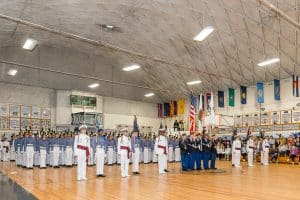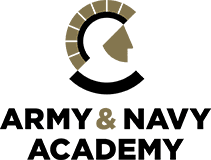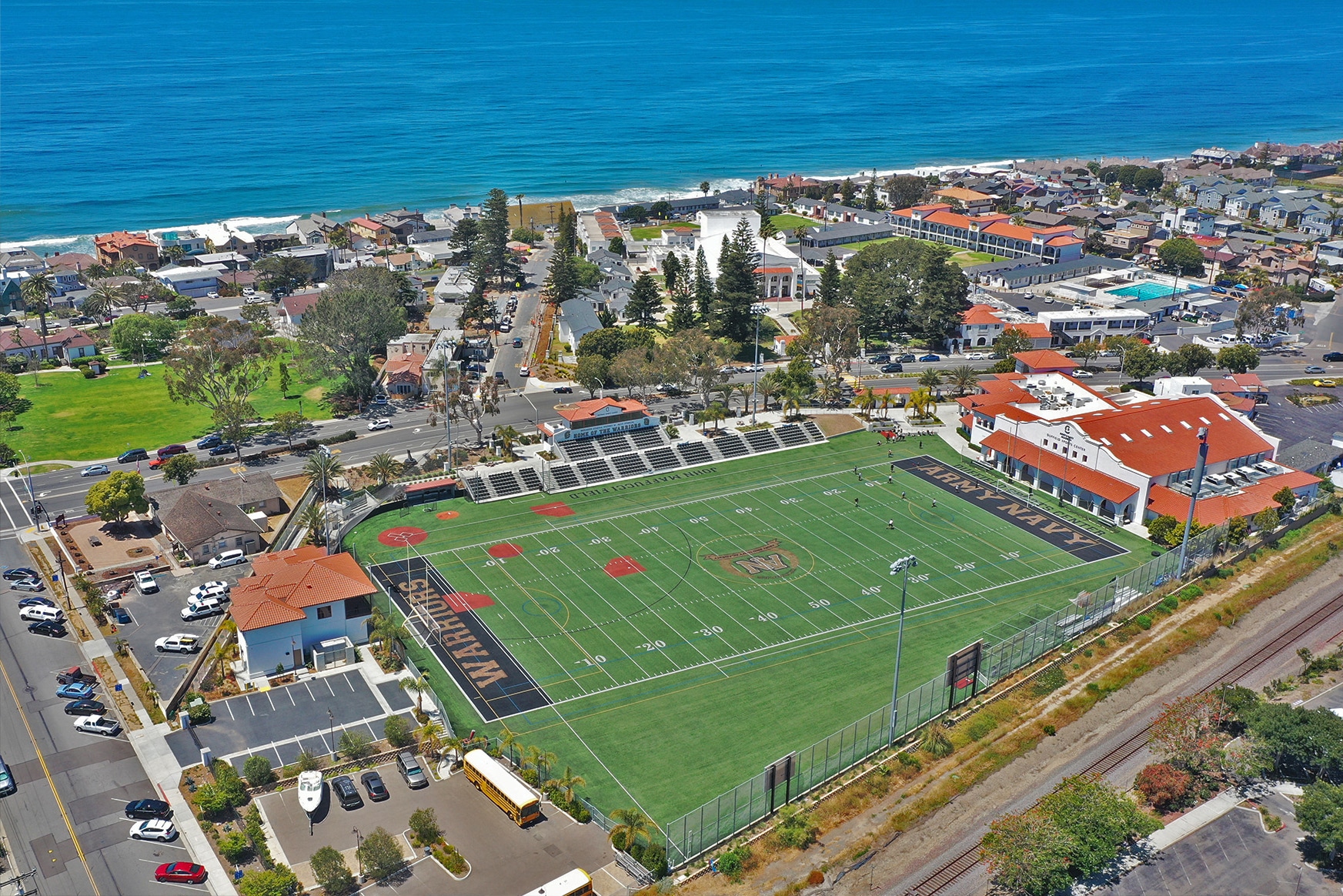 Considering participation in Junior ROTC? Wondering what JROTC stands for? We will review frequently asked questions, then provide an in-depth understanding of JROTC, as well as detail many of the benefits of JROTC and future pathways.
Considering participation in Junior ROTC? Wondering what JROTC stands for? We will review frequently asked questions, then provide an in-depth understanding of JROTC, as well as detail many of the benefits of JROTC and future pathways.
You will also uncover some of the many benefits offered at military boarding schools where they offer a JROTC program. It is an integral part of the education offered both inside and outside the classroom at military schools.
- Mission – The primary focus and mission of JROTC (Junior Reserve Officers’ Training Corps) is to develop and motivate our youth to become good citizens. This entails leadership training, character development, community service, physical fitness, and other types of skill development in high school (and in some cases, middle school as well).
- Core tenets of JROTC – “Leadership, character and community service are the core tenets of high school Junior Reserve Officer Training Corps programs or JROTC.” – U.S. News
- Program Structure – Established in 1964, JROTC includes all military branches: Army, Navy, Marines, Coast Guard, and Air Force. Instructors for classes in Leadership Education Training (LET) are retired military personnel and reserve officers.
Frequently Asked Questions about JROTC:
- Why do teens want to participate in JROTC? The majority of high school students in Junior ROTC simply want to gain the leadership, character, and career skills JROTC offers, as well as be of service to others. A small percentage of students may also want the competitive edge to gain admission to an ROTC university or one of the military service academies
- Can you do JROTC without joining the military? Yes, absolutely. There is no military enlistment requirement to participate in the Junior ROTC. If you attend a military school, public or private, you can simply focus on the benefits of the JROTC and attend a traditional college or university after high school.
- Does JROTC help with enlistment? It can help prepare you if you decide to enlist, but military preparation is not the objective nor the mission of JROTC. Beyond academics, you will strengthen your athletic, leadership and character. This will help you become a more responsible, resilient and motivated person, as well as a strong citizen.
- What are some specialized programs at military schools? Beyond offering JROTC leadership education training, private military schools may offer special academic programs such as: STEM classes, AP and Honors classes and electives in aviation/UAS, cybersecurity, and other areas to develop career skills. For athletics, there are even military schools with equestrian programs and surf teams. Clubs and electives may also include aligned interests with JROTC such as Harvard Model Congress, United Nations, and Rotary (Interact).
- Does JROTC count as military experience? Although JROTC prepares students mentally, physically and socially for a variety of life challenges, it does not count as military service experience. Rather than think of JROTC as military, think of it in terms of leadership training and citizenship.
- Are you considered in the military if you are in ROTC? Unlike the Junior ROTC, the Reserve Officers’ Training Corps (ROTC) is specifically for the college level and does require military service.
JROTC vs. Military Enlistment
- Misconceptions – There are many misconceptions about what JROTC does as a program, none of them more prevailing than the belief that enrolling in JROTC means enlisting in the military. It does not.
- Military Enlistment – If you were under the impression you would be required to join the military after high school because of JROTC participation, remember, JROTC is not a military preparation program. The main purpose of JROTC (Junior Reserve Officer Training Corps) is to prepare students to become better citizens and leaders.
- College Prep – Private military boarding schools in the U.S. offer a college preparatory experience. Therefore, the emphasis is on solid academics and the incorporation of leadership training and character development into all aspects of campus life.
Benefits of JROTC Participation
There are many benefits of JROTC that can be explored. Check out our article about the benefits of JROTC in high school if you want additional information.
Leadership Training
- Leadership development – JROTC provides one of the most essential life skills applicable in various careers. Teens gain real-world lessons in leadership and understand the chain of command and take responsibility for campus governance.
- Confidence – The backbone of leadership, confidence is critical to motivation and goal-setting. JROTC helps teenagers develop confidence through mental, physical, social, and ethical challenges. .
- Management – JROTC is a great starting point to learn career skills, including how to create a vision, as well as manage, mentor and inspire others. Top leaders in the Corps of Cadets are charged with high-level responsibilities that involve team-building.
- Character Development – JROTC instills values such as honor, integrity, respect, responsibility, and compassion. These values are put into action everyday in academics, athletics, clubs, and all aspects of life.
- Self-Reliance and Responsiveness – Cadets learn in JROTC to acquire a sense of responsibility and accountability for their own time management, demonstrate good manners, learn how to make good decisions and communicate effectively.
Academic Advantages
- Enhanced College Applications – Enhanced college applications and potential eligibility for ROTC scholarships are real bonuses of participating in JROTC while attending high school. You will also be able to make your application stand out. Scholarship and service can provide a competitive advantage to gain admission to top colleges, universities and the military service academies.
- Technology– JROTC has a sophisticated technological framework used in LET classroom lessons that directly benefits students. LET (Leadership Education Training) follows modules specifically designed to cover all the core content for the lessons on history, civics, geography, life skills, and much more. Here are some highlights of what is covered in these academic areas:
- History – LET classes help cadets build an understanding and appreciation of the history of the U.S.
- Government – LET lessons also help cadets develop an understanding of the U.S. government, how it works, and ways to give back through service.
- Geography – During LET classes, cadets open their eyes to the world at large, other countries, cultures, and learn basic geography.
Community Engagement
- Citizenship – Being a good citizen means following a value system, learning an honor code and living by it. Many military boarding schools follow the honor code: “do not lie, cheat, steal, nor tolerate, those that do.” As part of character development, they also have a set of core values that encourage leadership, service, honor, integrity, respect, responsibility, and gratitude.
- Service orientation – Service is a key component of any JROTC program and cadets learn how to do service projects to support their community. Junior ROTC fosters a sense of civic duty and community service projects range from food and blood drives, performances at hospitals, mentorship programs for youth, and support to the elderly and the troops.
- Teamwork – Knowing how to make new friends, build camaraderie, resolve conflict with peers, and when to offer a hand, are all key components of leadership training. Cadets attending military boarding schools often see the lessons from JROTC carry over from their academic classes to co-curricular and the required formations, drills, competitions, and annual reviews.
Diverse Career Opportunities
- Career paths – Military school graduates with JROTC as part of their high school education often pursue career paths in diverse fields such as: law, medicine, government, business, hotel management, technology, engineering, and aviation.
- Career Skills – Career skills acquired in JROTC include: leadership, management, project management, time management, goal-setting, and financial skills.
Military Service
- Service Academies – For those interested, JROTC provides a foundation for ROTC programs or service academies.
- Service Requirements – At the higher education level (college or university), there is a requirement to serve if you are in ROTC.
Higher Education
- College Choices – The majority of JROTC participants from U.S. military schools matriculate to traditional colleges and universities. College choices may include: private colleges, public universities, ROTC universities or military service academies (e.g. West Point, Annapolis, et al.)
- College Majors – In college, students who have gone through JROTC often find themselves majoring in fields as diverse as: law, medicine, government, business, technology, engineering, and aviation.
Pathways After JROTC
- Military Education and Training – Private military schools recognize students are attracted to military education and training for a variety of reasons, which may or may not include military service at all.
- Public and Private Universities – Based on statistics from the Association of Military Colleges and Schools of the United States (AMCSUS), the majority of graduates at military schools matriculate to traditional public and private colleges and universities.
- ROTC and Service Academies – Students interested in military service should consider the aid that comes from participation in university-level ROTC, as well as the tuition-free education provided by the five military service academies:
- U.S. Military Academy (USMA) at West Point
- U.S. Naval Academy (USNA) at Annapolis
- U.S. Air Force Academy (USAFA)
- U.S. Coast Guard Academy.
- U.S. Merchant Marine Academy (USMMA)
In conclusion, we hope we have addressed some commonly asked questions about JROTC. In particular, remember, there is no requirement to enlist and this is not the objective at the junior level.
No matter what your goals are beyond high school, consider the many academic and personal benefits Junior ROTC has to offer you. Enjoy the leadership, and character development, as well as the college and life preparation this outstanding national program has to offer.
For more information about the history and structure of JROTC, check out Wikipedia.
Learn More About JROTC: As a public service, the admission team at ANA is standing by to address your questions. Feel free to contact us at Army and Navy Academy, located on a beachfront campus in Southern California’s Carlsbad Village.
Army and Navy Academy is a college preparatory school with boarding and day options. Geared exclusively for boys in grades 7-12, we are a model school for boys in middle school and high school and are ranked as one of the top military schools in the U.S. If we’re not the right fit, we will make every effort to provide other information about U.S. boarding schools.
Army & Navy Academy Admission Office:
Phone: 888-762-2338

Candace Heidenrich is the CEO of Aperture Advisory Associates, where she works with private secondary and higher education leaders to strengthen programs and practices. She founded Aperture in 2018 after more than a decade in a senior administrative role at a boarding school in California. Additionally, she held faculty and chair positions at private schools and colleges in Los Angeles and Ojai. Her background also includes director and executive level positions with start-ups and Fortune 500 corporations.
While earning her B.A. in Education and Humanities in the Lawrence Henry Gipson Scholar program, she studied abroad at Oxford before pursuing her master’s at the University of California, Santa Barbara. A frequent speaker at national conferences, she is a recognized thought leader and authority on enrollment management and marketing best practices.
